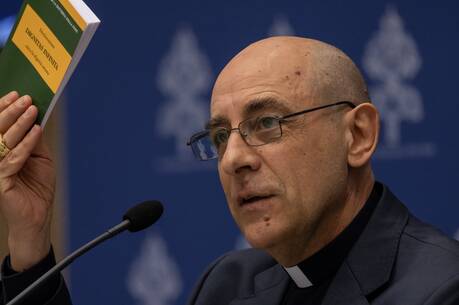We all turned off our TV’s Thursday evening after a strange but entertaining two hours with 10 people we had never met before but who were seriously presenting themselves as wise and experienced administrators, diplomats, leaders. Donald Trump seems to have dominated the campaign, the debate and the commentaries on the debate: his bad manners, his ego, his sexism, his admission that he has distributed cash to most of the other candidates on the stage and just about everyone in public life who was in a position to do him a favor—easily translated as “I bought them.”
But I felt strongly about only one other person on the stage: Ben Carson, M.D., the retired brain surgeon. Somehow the notion of a brain surgeon calls up awe, respect, judgment, someone of rare sensitivity. But it took only a few seconds, his answer to one question, to blow that awe all away. Megyn Kelly asked him if he would bring back water boarding. And he replied:
What we do in order to get information we need is our business and I wouldn’t necessarily be broadcasting to everybody what we’re going to do.... We’ve gotten into this mindset of fighting politically correct wars.... If we don’t tie [the generals’] hands behind their backs, they will [fight wars] extremely effectively.
In other words, limiting what we can do to captives if we want some information is no more than “political correctness,” a question of taste not morality. The end justifies the means. Outlawing stringing someone up naked and beating him is simply “tying the generals hands behind their backs.” Somewhere along the line his college and medical education never told him that all torture is against international law, water-boarding is not simply a question of taste, it’s against the law. Obviously he has not studied the literature on torture nor has he read the journalism on the Senate Report.
In an interview in The Christian Post (August 10, 2015) he explains how he became a Christian. As a teenager in Detroit he became angry about living in poverty and thought he would die young. The turning point came when he spent three hours locked in the bathroom one day and got to read Proverbs. He emerged cured, his temper was gone. He was also inspired by the story of Joseph in the Old Testament.
I too love the story of Joseph, which is above all a story of forgiveness; and I can’t imagine Joseph torturing anyone or allowing anyone else to do so.
Asked by the Christian Post about his lack of political experience he said that it was a “tremendous aid”—because he had other experience solving problems particularly in corporate America. He also spoke about his time at Yale when he feared failing the Chemistry exam; he prayed to God for help. The night before the exam he dreamed that he was alone in an auditorium and a “nebulous figure” appeared and wrote out all the chemistry problems on the blackboard. The next morning he went to the exam and there they were, the very same problems that had been solved in his dream. He “aced” the exam and promised God He would never have to do that for him again.
He should ask God to tell him what it means to torture another human being.








